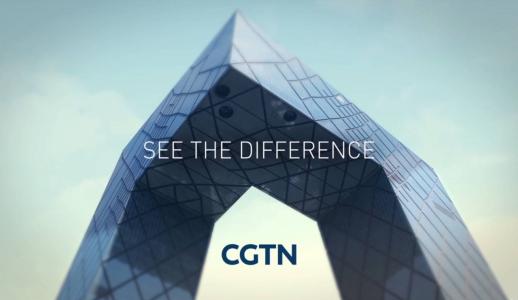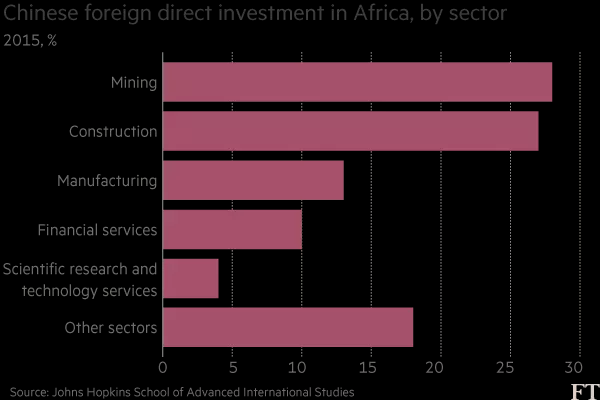

Illuminating Africa’s Economic Policy Priorities and Challenges from an African perspective

I have been a regular contributor to CGTN over the past four years as a panellist providing independent economic analysis of current affairs in Africa.
2017 saw a rebranding of CCTV Africa to CGTN, although I am not privy to the strategic goals of the change, I can say that I have observed a renewed focus on coverage of news with an African perspective on themes that Africans care about, addressing the key challenges required to spur economic growth, enhancing employment, increasing foreign direct investments, and addressing the infrastructure deficit across the continent.
CGTN places emphasis on getting the views of in-country experts, hosted by respected, award winning journalists of authority, so as to provide balanced insights on topical economic developments within their countries.
One of the global themes to which CGTN’s voice has been critical in providing a balanced view, is on the increasing protectionist policies that are emerging across the developed world. These include America’s election of President Trump, Britain’s Brexit vote to exit the European Union, among other anti-globalization movements across European countries.
CGTN has frequently provided the space to debate these issues, elucidating alternative view-points. Greater cooperation and trade partnerships across the globe will enhance existing value chains thereby creating opportunities for employment, higher income levels and ultimately economic growth. It is noteworthy to recognize the strong position taken by many other world leaders such as Germany and China, which view globalization, not as a zero-sum game where for one to gain another has to lose, but as an opportunity where all countries can benefit through their participation within the global value chains. CGTN has enhanced Africa’s voice in these global debates by providing opportunity for the articulation of the African perspective and informing on the benefits of a global economy.
Secondly, CGTN has also illuminated the debate on intra-African trade, which has been a major theme of the African Union and its Agenda 2063. Indeed the tripartite initiative to form cooperation between the SADC, COMESA and EAC, to establish a Continental Free Trade Area, will greatly benefit intra-African trade. This will open borders and enhance intra-African trade thereby providing opportunity for employment, industrialization, and economic growth. The African Development Bank (AfDB), notes in its African Economic Outlook 2017 report, that trade between African countries has the greatest potential for building sustainable economic development and integration. It reports that trade among African countries expanded from 10% in 2000 to about 16% in 2014, while Africa’s GDP and its internal trade expanded fourfold over the past two decades, suggesting that intra-African trade is more resilient than exchanges with other regions of the world, largely because manufactured goods are less susceptible to price shocks which affect primary products that constitute over 50% of trade between the continent and other countries.
Thirdly, CGTN has been keen to articulate for its viewers the implications of major global policy initiatives on Africa’s development. For example, providing in-depth coverage of the G7 and G20 meetings, and analysing the major decisions and their impact on Africa. Africa’s presentation at these global forums are often absent or in the minority, therefore a media focus on priorities for Africa from an African analysis and perspective could in one way or the other shine a spot light on relevant themes for Africa.
Fourthly, CGTN has continued to highlight the developments in the Paris climate change agreement. Climate change remains one of the most important issues in the 21st century owing to the danger it poses to the future of humanity. Africa is one of the highly vulnerable to climate change despite the fact that it’s the least contributor of greenhouse gases. Changing weather patterns, severe drought, amongst other climatic changes adversely affect African economies which are heavily reliant on agriculture. CGTN has followed and informed on climate change impacts in Africa and provided expert analysis on many of these issues. This is especially true in the face of growing global conservatism that has seen western countries oppose the Paris climate agreement. For instance, the USA, the world’s second highest contributor of greenhouse gases, has in 2017 withdrawn from the Paris accord posing a serious threat to other countries’ commitments. Fortunately, other world leaders have continued to express their commitment to the Paris agreement, including China and India which are the world’s first and third largest greenhouse gases contributor respectively.

Fifthly, Africa has witnessed tremendous economic growth over the past one and a half decades and CGTN has been at the forefront in telling its story. In this time, trade between Africa and the rest of the world increased fourfold; China and India, Africa’s 8th and 9th largest trading partners in the year 2000, are the countries now in 1st and 2nd place. In spite the geographic diversification of Africa’s trading partners this has not led to a significant change in the composition of its exports, and Africa’s Continental Free Trade Area is becoming the world’s largest single free trade area by number of countries.
Lastly, Africa’s biggest story has been the cooperation with China and CGTN has been at the forefront in highlighting the partnership between Africa and China. In 2016, China announced a USD 60 billion Africa loan and aid fund, Chinese President Xi said that China aims to develop infrastructure, improve agriculture and reduce poverty on the continent.
Chinese investments in Africa have skyrocketed in recent years from $7 billion in 2008 to $26 billion in 2013. Majority of the investments are in Mining and construction sectors, as well as manufacturing, science and technology sectors.
In conclusion, CGTN is growing to be a powerful voice, telling Africa’s story through in depth analysis, providing valuable insights and positioning itself as a trusted news source among its viewers by offering balanced views on Africa’s current affairs. 2017 has certainly seen it continue to cement its place in many of Africa’s living rooms.
David Owiro - Kenyan
Former Economic/Political Analyst at Institute of Economic Affairs Kenya, now an Independent consultant analyst of economic/political affairs in Africa
 Fire brigade in Shanghai holds group wedding
Fire brigade in Shanghai holds group wedding Tourists enjoy ice sculptures in Datan Town, north China
Tourists enjoy ice sculptures in Datan Town, north China Sunset scenery of Dayan Pagoda in Xi'an
Sunset scenery of Dayan Pagoda in Xi'an Tourists have fun at scenic spot in Nanlong Town, NW China
Tourists have fun at scenic spot in Nanlong Town, NW China Harbin attracts tourists by making best use of ice in winter
Harbin attracts tourists by making best use of ice in winter In pics: FIS Alpine Ski Women's World Cup Slalom
In pics: FIS Alpine Ski Women's World Cup Slalom Black-necked cranes rest at reservoir in Lhunzhub County, Lhasa
Black-necked cranes rest at reservoir in Lhunzhub County, Lhasa China's FAST telescope will be available to foreign scientists in April
China's FAST telescope will be available to foreign scientists in April "She power" plays indispensable role in poverty alleviation
"She power" plays indispensable role in poverty alleviation Top 10 world news events of People's Daily in 2020
Top 10 world news events of People's Daily in 2020 Top 10 China news events of People's Daily in 2020
Top 10 China news events of People's Daily in 2020 Top 10 media buzzwords of 2020
Top 10 media buzzwords of 2020 Year-ender:10 major tourism stories of 2020
Year-ender:10 major tourism stories of 2020 No interference in Venezuelan issues
No interference in Venezuelan issues
 Biz prepares for trade spat
Biz prepares for trade spat
 Broadcasting Continent
Broadcasting Continent Australia wins Chinese CEOs as US loses
Australia wins Chinese CEOs as US loses